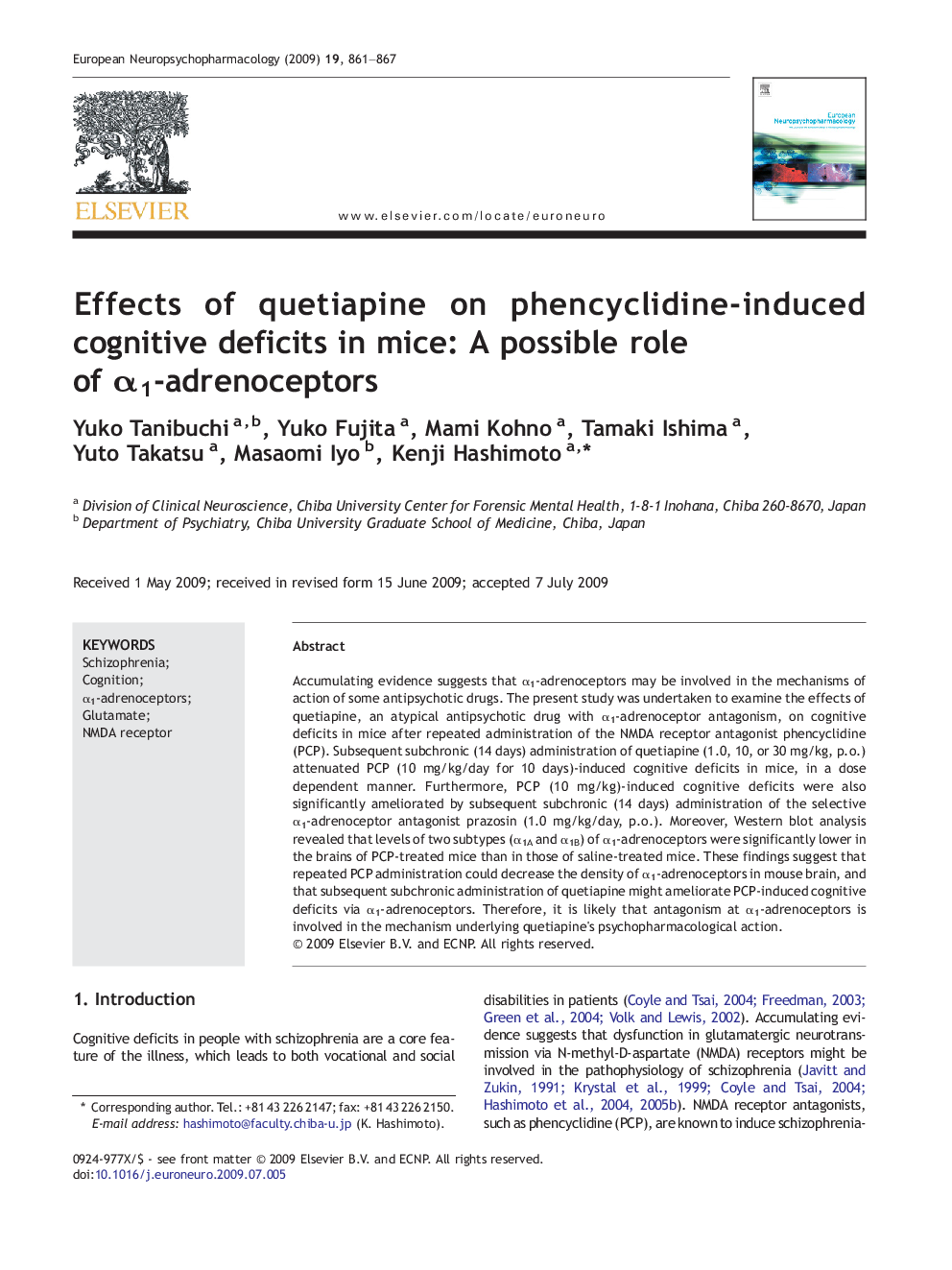| Article ID | Journal | Published Year | Pages | File Type |
|---|---|---|---|---|
| 319843 | European Neuropsychopharmacology | 2009 | 7 Pages |
Accumulating evidence suggests that α1-adrenoceptors may be involved in the mechanisms of action of some antipsychotic drugs. The present study was undertaken to examine the effects of quetiapine, an atypical antipsychotic drug with α1-adrenoceptor antagonism, on cognitive deficits in mice after repeated administration of the NMDA receptor antagonist phencyclidine (PCP). Subsequent subchronic (14 days) administration of quetiapine (1.0, 10, or 30 mg/kg, p.o.) attenuated PCP (10 mg/kg/day for 10 days)-induced cognitive deficits in mice, in a dose dependent manner. Furthermore, PCP (10 mg/kg)-induced cognitive deficits were also significantly ameliorated by subsequent subchronic (14 days) administration of the selective α1-adrenoceptor antagonist prazosin (1.0 mg/kg/day, p.o.). Moreover, Western blot analysis revealed that levels of two subtypes (α1A and α1B) of α1-adrenoceptors were significantly lower in the brains of PCP-treated mice than in those of saline-treated mice. These findings suggest that repeated PCP administration could decrease the density of α1-adrenoceptors in mouse brain, and that subsequent subchronic administration of quetiapine might ameliorate PCP-induced cognitive deficits via α1-adrenoceptors. Therefore, it is likely that antagonism at α1-adrenoceptors is involved in the mechanism underlying quetiapine's psychopharmacological action.
